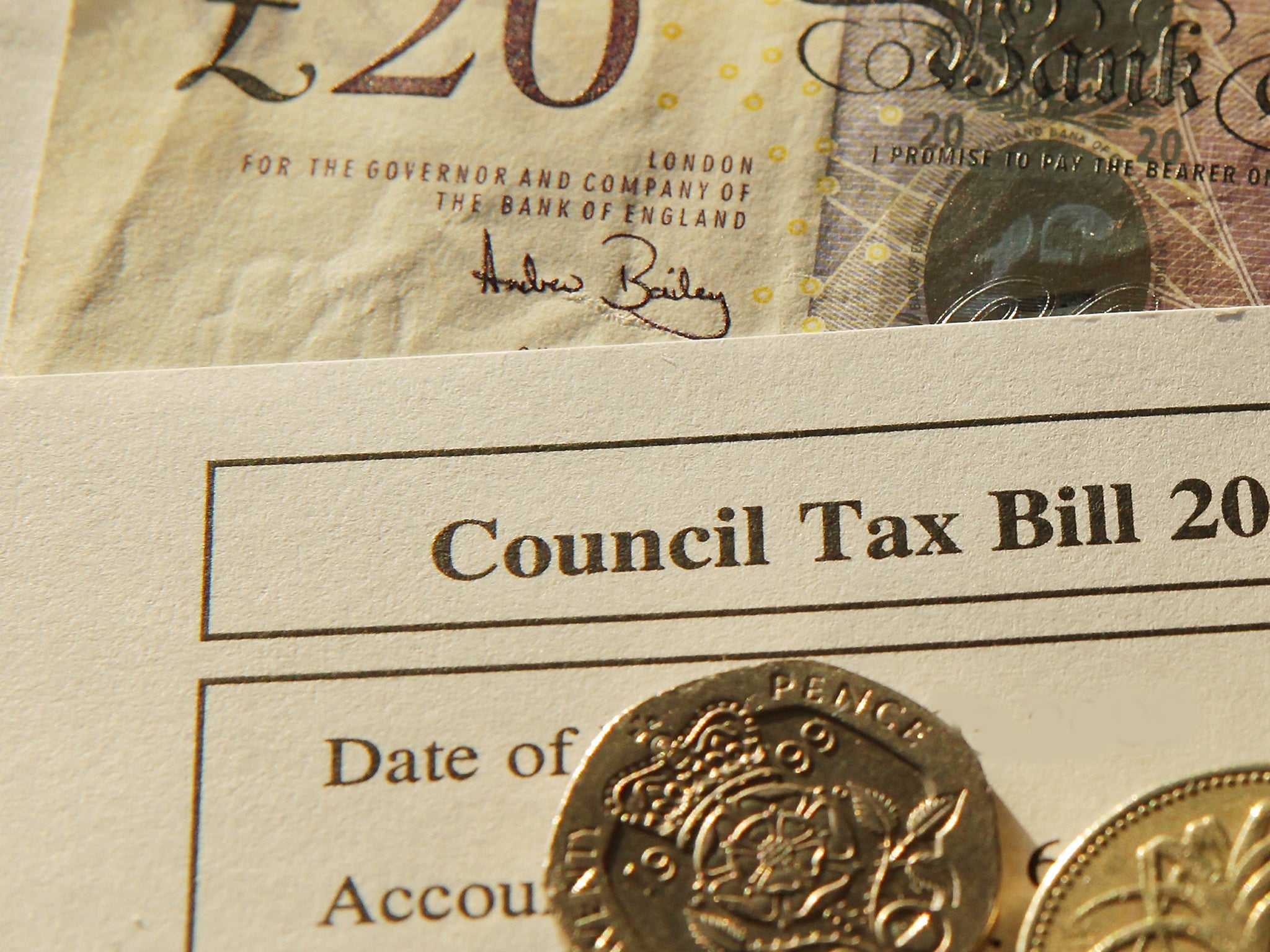Police costs set to rise by as much as five per cent

Your support helps us to tell the story
From reproductive rights to climate change to Big Tech, The Independent is on the ground when the story is developing. Whether it's investigating the financials of Elon Musk's pro-Trump PAC or producing our latest documentary, 'The A Word', which shines a light on the American women fighting for reproductive rights, we know how important it is to parse out the facts from the messaging.
At such a critical moment in US history, we need reporters on the ground. Your donation allows us to keep sending journalists to speak to both sides of the story.
The Independent is trusted by Americans across the entire political spectrum. And unlike many other quality news outlets, we choose not to lock Americans out of our reporting and analysis with paywalls. We believe quality journalism should be available to everyone, paid for by those who can afford it.
Your support makes all the difference.The amount paid by households towards the cost of policing looks set to rise by up to five per cent this year as the Government faces a potential show down with its flagship Police and Crime Commissioners (PCCs) who are demanding above inflation increases in council tax to combat swingeing budget cuts.
Yesterday Greater Manchester Police became the latest major force to signal it would be seeking a rise in bills which it said would fund the equivalent of 100 community support officers.
Police and Crime Commissioner Tony Lloyd warned that without the anticipated £5 rise (the equivalent of three per cent) on annual bills for band D homes, the force – the third largest in England - was “standing on the edge of a cliff” as it faces £100m in cuts having already lost a quarter of its budget.
All but four of the 41 directly elected police and crime commissioners are seeking extra cash from local people already struggling to cope with the cost of living crisis as they seek to combat steep falls in the amount of money made available from Whitehall.
But despite being required by law to set a new budget one senior PCC they are in the “ridiculous situation” of having yet to be told by ministers how much extra money they can raise without triggering a referendum under the Localism Act.
Local government minister Brandon Lewis again urged voters to veto excessive rises in council tax describing those that sought more money as “democracy dodgers”.
He said: “Local referendums could be held this year on the same day as the European elections at minimal cost and inconvenience. If they aren't going to freeze council tax, local authorities should trust the people and let taxpayers' decide.”
London Mayor Boris Johnson, who oversees the Metropolitan Police budget, is among those ordering a freeze on annual increases through the council tax although he has yet to finalise the budget for the capital which does not have a PCC.
Mr Lloyd said Government cuts were “endangering public safety” and that 1,100 officers had been shed in Greater Manchester since 2010. He added: “The Chief Constable has told me that he cannot provide the levels of policing that Greater Manchester people expect and deserve if this programme of cuts goes beyond 2017. There simply will not be enough money in the pot.”
West Midlands PCC Bob Jones is seeking a three per cent increase whilst Alun Michael in South Wales has won approval for an additional five per cent although he answers to the Labour-run Welsh Assembly.
The contribution paid towards policing through local taxation is around a quarter of the overall funding in England and wales. It appears on the household’s annual bill alongside the amount required to fund the council and fire and rescue services. Figures can vary dramatically. The average amount paid towards policing is £170 a year. The lowest is around £100 whilst others levy twice as much, with Londoners paying £216 in 2013/14.
The commissioners must discuss their plans with their local crime panels before gaining Government approval. Councils, which cannot raise council tax by more than two per cent without triggering a referendum, fear the electoral fall out from any increases in annual bills will result in voters punishing politicians.
Join our commenting forum
Join thought-provoking conversations, follow other Independent readers and see their replies
Comments